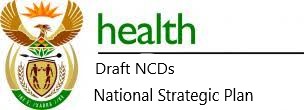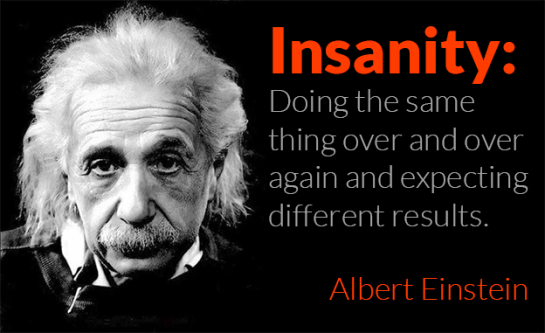
NCDs NSP policy list draft
The SANCDA developed this list to guide integrated person-centred care.

The SANCDA developed this list to guide integrated person-centred care.

On 30 November, 2020 the current version of the NCDs NSP (draft 4 2020) was circulated to the NDoH Technical Committee for comment. We asked our stakeholder to comment again. However, within days the NDoH referred the draft Public Health England (PHE) for peer review. The methodology of the peer review is not known but members of the TC were asked to make input. WHO NCDs country representative, Dr Mwangi and I made comments. Click here to view.
We understand that the review is complete and await feedback and the consultant working on the NSP, contracted by the Better Health Programme, stated that it is likely in the next two weeks. As soon as we know, you will know!
After years of
During December talks between the SANCDA and SAHRC continued about inequity for NCDs and disabilities. On 18th December 2020 culminated with two major activities occurred: a meeting between with the SAHRC and the laying of a formal complaint on behalf of PLWNCDs.
On December 18 the SANCDA met with the SA Human Rights Commission to lodge a complaint about the state of NCDs+ and disability policy in South Africa.

Finance Minister Tito Mboweni says the country needs to work on the implementation of policies if it is to realize improvements and growth in the country’s sluggish economy.
Mboweni made the comment when he delivered his opening remarks at the third economic colloquium on the South African economy on Thursday.
“One of the biggest constraints to economic growth in South Africa is lack of implementation about things that were decided upon. If we at least implement 30% of the things we said we would implement then we would be making great progress,” said Mboweni.
The third economic colloquium will see government officials, public and private sector economists, and academics deliberate on policy proposals on how to improve and grow the South African economy.
The colloquium comes in preparation for the Medium Term Budget Policy Statement (MTBPS) to be tabled in Parliament during October.
Following the first colloquium, the Minister presented ideas emanating from the engagement to the governing party – the ANC.
“One of the things I have learned over the years is that you need political buy-in. If you think you can just parachute policy from somewhere without political buy-in, then you are wasting your time, which most think tanks do not understand. Because at the end of the day, policy is politics.” said the Minister.
Tito Mboweni
The economic colloquium will also allow delegates to discuss the recently published paper on South Africa’s economic strategy titled “Towards a growth agenda for the South African economy”.
Mboweni said well over 700 comments were received on the paper by the National Treasury.
“My guidance to the Treasury staff when going through the comments was that ideas which are internally consistent with what we are trying to do we should incorporate.
“Those that are internally inconsistent we should just appreciate the contribution and say this is not consistent with what we are trying to do,” he said.
Mboweni said he and his team would spend the upcoming weekend putting the final touches to the MTBPS while also finalising the economic strategy document.
“We are now at the tail end of the preparations so this meeting gives us the opportunity to have the last bite.
“The expectation is that when we submit the MTBPS we should also provide the finalised version of the economic strategy document,” he said.
While the MTBPS was scheduled to take place on 30 October 2019, Minister Mboweni announced that this was likely to change to allow the President to attend.
“I need to say here that the Medium Term Budget Policy Statement is likely to be presented earlier than the 30th of October. We had initially planned on the 30th.
“We had planned that around the President’s diary. It turns out that he might be out of the country. So we are going to have pull back the date. We are looking at the 29th of October 2019,” he said.
According to Treasury, SA’s current economic path is unsustainable with the country facing the triple threat of stagnating economic growth, rising unemployment and high inequality.
Since his appointment, Mboweni has hosted two successful economic colloquia.
The previous colloquia assessed some of the viable policy proposals and interventions that encourage new models and paradigm shifts to support faster and more inclusive economic growth in South Africa.
 The South African elections are over, and it is back to business. It needs to be business as unusual in the case of NCDs prevention and management. Business as unusual? Einstein characterised insanity as doing the same thing over and over again and expecting different results.
The South African elections are over, and it is back to business. It needs to be business as unusual in the case of NCDs prevention and management. Business as unusual? Einstein characterised insanity as doing the same thing over and over again and expecting different results.
When advocates argue, politicians vote, and organizations campaign, they say they are trying to shape or respond to political will. Political will is the ghost in the machine of politics, the motive force that generates political action. Charney Research
NCDs policy is a case in point with the now expired South African NCDs strategic plan (2013-2017) failing dismally even to scratch the surface of the epidemic. Similar to much of SA health policy, it was purely window dressing, with implementation and budgets unmeasurable. For the last decade, communicable disease (like HIV and TB) is the only health concern of politicians. Jacob Zuma and his ilk came to power on that ticket with a policy emphasising “universal access” for people living with HIV. And so national health insurance (NHI) and its identical twin, HIV treatment access, were born. Politicians and deployed officials don’t differentiate between the two. When you add “health systems strengthening” and the “Ideal Clinic” to the HIV/NHI package, it equals the current broken and siloed healthcare system.
Let us not pretend otherwise as we head for the 2nd State of the Nation Address in 2019 with a raft of fledgeling MPs for 6th Parliament. There is zero political will deal with NCDs. Oops, there are two exceptions: fiscal measures and cancers linked to HIV (cervix and breast at a stretch). In the health bit of the 2019 ANC election manifesto, NHI and HIV remain the only priority. The same goes for the 2019 health budget. Policy consistency as an art form, only Einstein says it is insanity
So, business as unusual for people living with NCDs means acknowledging that NCDs like diabetes, stroke, heart disease and chronic lung problems are the biggest killers in South Africa. It means giving NCDs an equivalent priority alongside HIV and TB and putting the missing money where its collective mouth is.
Political will is the missing ingredient in the SDG era. It is going to take more than cheap words and a dawn walk in the name of NCDs prevention.